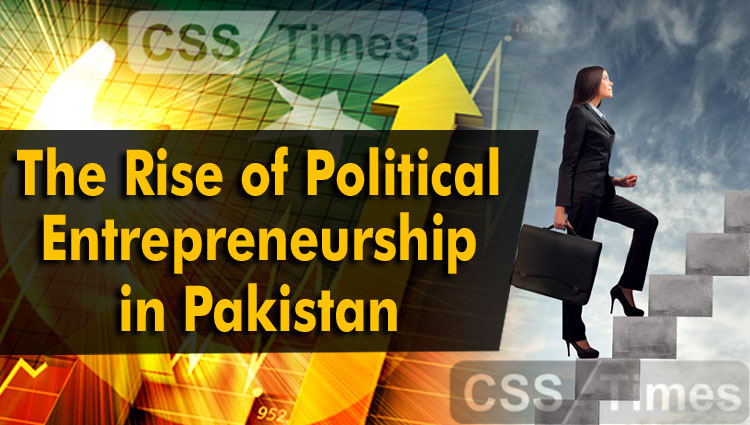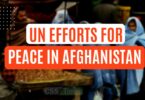By Jamal Sohail
“Democracy is in the blood of the Muslims, who look upon complete equality of mankind, and believe in fraternity, equality, and liberty.”
– Quaid-e-Azam Muhammad Ali Jinnah, founder and 1st Governor-General of Pakistan
On 18 August 2018 Imran Khan was sworn in as the 22nd Prime Minister of Pakistan with his political party, the Pakistan Tehreek-e-Insaf, having won the general elections. It was an important victory as it disrupted the existing multi-party politics of Pakistan which was dominated by two main parties, the Pakistan People’s Party (PPP) and the Pakistan Muslim League Nawaz (PML-N), for the last 40 years and more, making Imran Khan a political entrepreneur. Entrepreneurship is defined as the readiness to take the risk of taking on a business venture that will create a new market, disrupting the existing market in order to make profit and of succeeding. In entrepreneurship the person who starts the company is called an entrepreneur and the company in its initial stages is called a start-up and undergoes three main phases, the start-up phase, the growth phase, and the exit phase. In politics Imran Khan’s PTI broke the status quo and went through all these phases since being founded in 1996.
Pakistan was created on 14 August 1947 as a separate homeland for the Muslims where they would live peacefully and freely on the basis of the two-nation theory. The two parties that dominated the democratic political framework of Pakistan for the past several decades were founded in 1967 (PPP) and 1988 (PML-N), whereas the PTI was founded in 1996 which makes it younger than its rivals. After its formation, the PTI had little success, as it contested the 1997, 2002 and 2013 general elections previously and boycotted the 2008 elections. It was not until 2002 when the party chairman Imran Khan won only one seat and 22 years later that the PTI came at the helm of power and its founder became the Prime Minister. And the saying goes, the rest is history.
Imran Khan started the PTI with a clear vision, just like an entrepreneur starting a business with a clear vision. Even though Imran Khan lacked experience in politics he did have the credentials and profile to build a strong political party and convince others to join him. He is a cricket legend and was the captain of the 1992 cricket World Cup-winning team and as a philanthropist he established a leading cancer hospital in Pakistan. After starting a lone journey, Imran Khan and the PTI slowly started getting traction, followers and even senior ambitious politicians from other political parties started joining PTI as they shared the common vision Imran Khan had which can be compared to a start-up attracting senior management and board members from other well-established companies who share the same vision as the entrepreneur into his start-up. The vision was of a “Naya Pakistan (New Pakistan)”, a Pakistan that would be corruption-free with millions of jobs and sweeping reforms for the country’s welfare. By having this vision PTI created a blue ocean in which they differentiated themselves from other political parties’ offerings and kept away from the red ocean of traditional politics and promises. This vision was not something novel but the manner in which it was being presented was different or innovative as it is said in a start-up culture and it immediately hooked the attention of the people of Pakistan and became a turning point for the PTI in politics. The PTI came into the main limelight in 2011 and their prominence, importance and growth continued to surge after that. They were also considered strong contenders to win the 2013 general elections. Other than the vision, PTI also gave new meaning to the dharna/protest politics in 2014, in which they attracted large number of crowds and kept pressure on other political parties for several weeks. They also introduced the PTI membership drive to attract more people into the party, especially the youth, who would be voting for the next several elections and who are the majority of Pakistan. Following a successful start-up and growth phase the next and most important step is the exit phase. After everything was set and done it was now time to test the confidence of the masses in PTI in the elections of 2018. It proved to be very positive and PTI formed the government, a peak that every political party wishes to achieve. This is the equivalent of an IPO (initial public offering/listing on the stock exchange) that every start-up dream to achieve as an exit.
We now have to see that can Imran Khan and PTI deliver the promises from their 2018 election manifesto, on the basis of which they got the support of the masses and came into power. Only then can the dream of Naya Pakistan become a reality and PTI be re-elected once again for another term. Otherwise the confidence of the masses will be shattered and PTI shall fall just like a start-up that falls after failing to deliver, and with the investors pulling out
PTI went from zero to one and today it claims to be the largest political party of Pakistan with more than 10 million members worldwide. It has now been over one year since Imran Khan became the Prime Minster of Pakistan and PTI formed the government. There are mixed reviews of their performances so far. They have done considerably well on the diplomatic front but have disappointed at the economic front. The speech of Imran Khan at the United Nation General Assembly on September 27 was praised by many across the globe in which he highlighted Islamophobia and stressed on the unity between Muslims states and the world. He also had a firm stance on Kashmir and the Indian atrocities in Indian Occupied Kashmir.
We now have to see that can Imran Khan and PTI deliver the promises from their 2018 election manifesto, on the basis of which they got the support of the masses and came into power. Only then can the dream of Naya Pakistan become a reality and PTI be re-elected once again for another term. Otherwise the confidence of the masses will be shattered and PTI shall fall just like a start-up that falls after failing to deliver, and with the investors pulling out. The success or failure of Imran Khan and PTI will also determine the future of political entrepreneurship in Pakistan.
Courtesy: Pakistantoday
Check Other Current Affairs Notes for CSS
- US vs China (By: Dr Farrukh Saleem)
- Dismantled Kashmir (By: Dr. Zeeshan Khan)
- Explainer: What India’s Change to Occupied Kashmir’s Status Means
- Current Affairs MCQs Solved (July-August 2019) | Download in PDF
- Causes of “Arab Spring” | Current Affairs CSS 2015 Solved Paper
- Role of Education in Character Building of a Nation (CSS Current Affairs 2015)
- Last Hour Revision Plan for Current Affairs & Pakistan Affairs CSS Paper
- CSS Current Affairs Paper Attempt Techniques (By: Saeed Wazir)
- Accountability VS Good Governance | CSS Times Video Lectures
- Top 15 Most Important Current Affairs Questions for CE-2019







